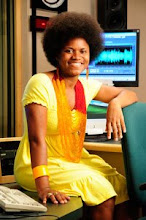(SECOND INTERVIEW)
Thursday, January 22 2009 -A View From Inside
 Earl Echard
Earl Echard
Thursday, January 22 2009 -A View From Inside
Earl Echard also remembers segregation. He grew up having to sit on hard, straight chairs in the back of the doctor's office as a kid - only white people could sit in the waiting room. Earl grew up to become a physician assistant, and has chosen to spend his career working in low income housing areas and prisons. As he tells Dick, Earl is less optimistic that having an African American president will improve life for the many young African Americans born to disadvantage.






